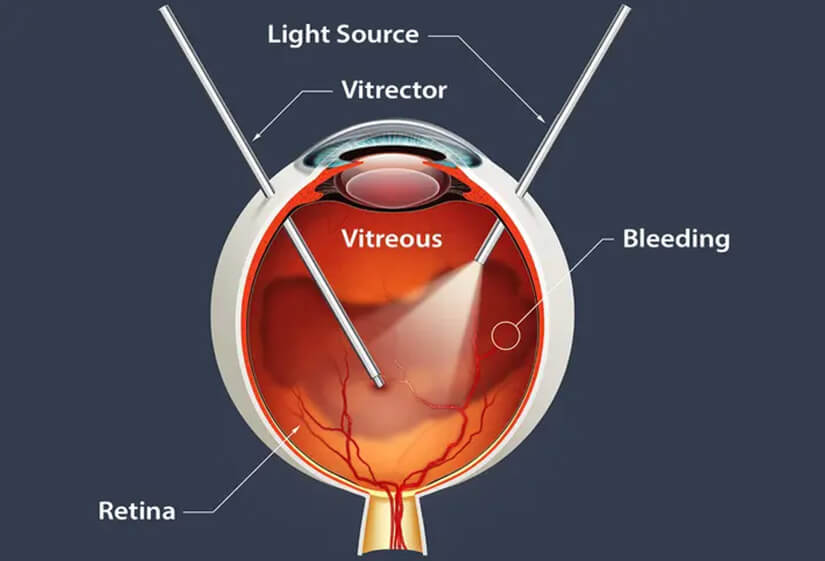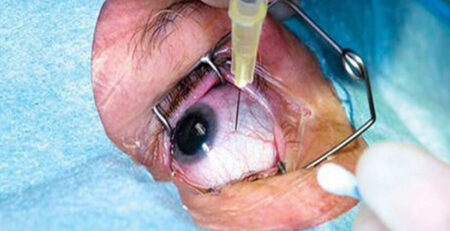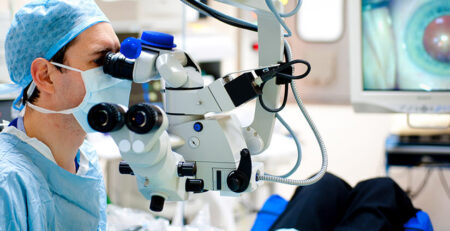How Long Does It Take to Recover from Retina Surgery?
Retina surgery is a delicate and essential procedure that addresses a wide range of retinal disorders, ranging from retinal detachment to macular holes and diabetic retinopathy. While the surgery itself may only take a few hours, the recovery is a layered journey that depends on multiple factors, including the type of surgery, the severity of the condition, and the patient’s general health.
In most cases, retina surgery recovery spans from a few weeks to several months. Initial healing of the eye tissues often completes within 4 to 6 weeks, but complete visual rehabilitation may take longer, sometimes up to a year. Understanding the process and expectations can help reduce anxiety and improve outcomes.
The First Week: Immediate Post-Surgery Phase
The first week after retina surgery is the most crucial. This is when inflammation is at its peak, and the risk of complications is highest.
You can expect:
- Mild to moderate pain or discomfort
- Blurred vision
- Redness or irritation
- Light sensitivity
Your surgeon may prescribe antibiotic and steroid eye drops to minimise infection and swelling. If a gas bubble or silicon oil was used during surgery (commonly in vitrectomy procedures), you may be required to maintain a face-down position for several hours daily. This helps the bubble press against the retina to hold it in place for healing.
The success of retina surgery recovery hinges greatly on how well you follow these instructions in the initial phase.
Week 2 to Week 4: Signs of Progress
As you move into the second and third weeks, you may notice:
- Reduced discomfort
- Gradual improvement in vision
- Less redness and watering
However, your vision might still be quite blurry. This is normal. During this time, the retina is reattaching and stabilising. Most patients can resume some light activities, but should still avoid:
- Driving
- Reading for long periods
- Using screens extensively
- Lifting anything heavier than 5-10 kg
Your eye doctor in Delhi will likely schedule one or more follow-up visits during this phase to monitor intraocular pressure, check for signs of infection, and assess the retina’s condition. Depending on your healing, you might be allowed to stop face-down positioning if it was required.
One to Three Months: Stabilization and Visual Adjustment
By the end of the first month, the eye has generally healed enough that the risk of complications is much lower. At this stage:
- Vision continues to improve
- Gas bubble, if used, has mostly dissolved
- Patients may resume work depending on its nature
- Corrective lenses may be prescribed to fine-tune vision
If you’re wondering when you’ll see “normally” again, the answer varies. Some people regain excellent vision within a few months, while others may continue to experience blurred or distorted vision. If the macula was involved, or if there was a large detachment, full visual recovery might take longer or may n ot happen at all.
This is also a phase where emotional recovery plays a role. It’s not uncommon to feel frustrated or impatient. Having open conversations with your eye doctor in Delhi can help manage expectations and anxiety.
Three to Twelve Months: Full Recovery and Long-Term Care
Between the third month and the end of the first year, most people achieve their best possible post-operative vision. However, certain limitations may persist:
- Mild visual distortion
- Night vision issues
- Altered depth perception
- Slow adaptation to bright/dim lighting
The extent of these issues largely depends on the pre-surgical condition of the retina. For example, a retinal detachment involving the macula may result in some permanent central vision changes.
During this time, lifestyle changes like a healthy diet, controlling blood sugar and blood pressure, and regular eye exams are essential to prevent future complications.
Your final visual outcome will also depend on whether the retina surgery addressed a chronic condition like diabetic retinopathy or a more acute issue like a tear or hole.
What Affects the Length of Retina Surgery Recovery?
- Type of surgery:
- Vitrectomy: 4–6 weeks for initial healing
- Pneumatic Retinopexy: 2–3 weeks
- Scleral Buckle: 3–5 weeks
- Use of a gas bubble:
Recovery takes longer if gas or silicon oil is used, especially with face-down positioning. - Macula involvement:
Vision takes longer to recover if the macula was detached. - Underlying conditions:
Conditions like diabetes or hypertension can slow healing. - Patient compliance:
Your adherence to medication, posture, and activity guidelines plays a big role.
Tips to Optimize Retina Surgery Recovery
- Keep all post-op appointments without fail
- Avoid air travel until your doctor confirms it’s safe (due to pressure changes)
- Wear protective eyewear outside
- Follow dietary recommendations to promote eye health (omega-3s, leafy greens, etc.)
- Inform your doctor immediately if you notice increased pain, floaters, flashes, or vision loss
When to Consult an Eye Doctor in Delhi?
Delhi offers access to some of the finest ophthalmologists in India, with advanced facilities and experienced specialists. Whether you’re considering surgery, are in post-op recovery, or need a second opinion, timely expert intervention can make a life-changing difference.
Meet Dr. Anisha Gupta – The Trusted Eye Specialist in Delhi
If you or your loved one is going through the uncertainty of retina surgery recovery, you don’t have to walk this path alone. Dr. Anisha Gupta, a leading eye doctor in Delhi, brings compassionate care, precision, and cutting-edge expertise to every patient interaction. She believes that every patient deserves personalised attention, not just during surgery, but throughout the entire healing journey.
With a focus on patient comfort, evidence-based techniques, and ongoing support, Dr. Gupta’s clinic has become a trusted destination for those seeking excellence in retinal care.
Take the next step toward better vision—book a consultation today and experience the difference expert hands and an empathetic heart can make.











